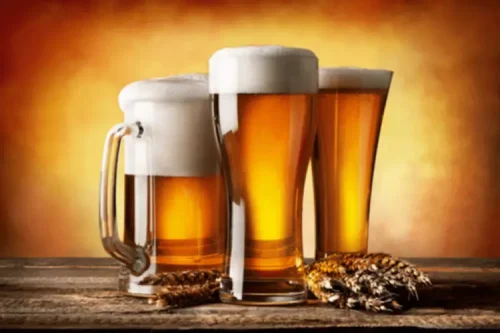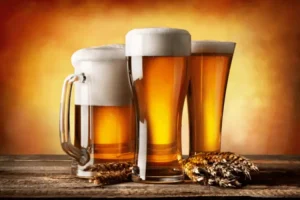Sober living
9 Signs that Your Wine Habit is Becoming a Real Addiction

It’s important to recognize wine addiction symptoms because a casual and healthy drinking habit can easily become problematic. Alcoholism and alcohol abuse of any kind can cause serious complications and health problems and must be addressed and treated. Not everyone who drinks alcohol will develop an addiction, but drinking too much even without addiction can become problematic. There are some positive health benefits of wine, which is made solely from grapes and the natural yeast found on them, but there are also risks. One of these is an addiction, and that can lead to many more issues.
Can You Become an Alcoholic with Wine?
- A standard drink of wine with about a 12% ABV is a 5-ounce pour.
- If you have specific concerns or a situation arises in which you require medical advice, you should consult with an appropriately trained and qualified medical services provider.
- Some wine is made using pomegranate, strawberry, honey or rice.
- A treatment center will attempt to verify your health insurance benefits and/or necessary authorizations on your behalf.
- This may include therapy, medication, or a combination of both.
- The most important difference between wine addiction and alcoholism is the type of alcohol consumed.
Alcohol addiction creates significant cravings that result in people drinking earlier and earlier in the day. Not only can this create a more substantial drinking problem, it will start to impact other areas of your life. When regular drinking starts to become a problem, you may find that you have regrets the next day. You may have blacked out and can’t remember what you did the evening before, or you may regret some of the things that you said after a few glasses of wine. It is not uncommon for people to have evening wine traditions where they enjoy a glass of wine to wind down.
When is it Time for Treatment?
The alcohol content of wine, or its concentration of alcohol, can affect its strength, the effects of alcohol on the body, and the recommended serving size. U.S. dietary guidelines for alcohol use recommend that adults of legal age limit their alcohol intake to one drink or less per day for women, or Drug rehabilitation two drinks or less for men. If an individual continues abusing wine, they may build a tolerance, and even become dependent on the drug.
Back to Work: Tips for Office Life in Early Recovery
Suboxone (buprenorphine/naloxone) is indicated for the treatment of opioid dependence in adults. Suboxone should not be taken by individuals who have been shown to be hypersensitive to buprenorphine or naloxone as serious adverse reactions, including anaphylactic shock, have been reported. Taking Suboxone (buprenorphine/naloxone) with other opioid medicines, benzodiazepines, alcohol, or other central nervous system depressants can cause breathing problems that can lead to coma and death. For more information about Suboxone (buprenorphine/naloxone) see Suboxone.com, the full Prescribing Information, and Medication Guide, or talk to your healthcare provider. You are encouraged to report negative side effects of drugs to the FDA.

Clinical care
- Only trained and licensed medical professionals can provide such services.
- Abusing alcohol can result in physical, mental and spiritual distress as well as problems at work, home or school.
- Alcohol use disorder among wine drinkers can be identified by a number of changes in your behavior, physical health, your relationships with others, and mental health.
- You may be craving wine too much or gravitate towards activities that involve wine.
- Wine affects each person differently, and for some, it becomes too much for their body and mind to handle.
Detox is often considered a vital first step to alcohol treatment and may be required for the safety of a patient. After suffering from the use and neglect that often come with an alcohol addiction, a body needs healing. A medically-supervised detoxification (medical detox) helps patients overcome the physical addiction to alcohol. Medical detox works to remove the unwanted chemical (alcohol) out of the body, and restore physical and nutritional balance. Wine addiction is characterized by addicted to wine a person’s inability to stop using the drug, whether it causes problems with their health, relationships, work, school or other things they’re passionate about.

ABV in Beer

If you do experience withdrawal symptoms, your doctors can prescribe medications to make them less severe. For instance, you might be given a sleep aid to reduce insomnia. At an inpatient program, you’ll receive 24/7 care and monitoring from healthcare professionals. At an outpatient program, you’ll live at home while regularly attending a treatment center. Talk to your doctor to determine which option is right for you. If you or someone you know experiences these symptoms, seek emergency medical care.

Many people gravitate towards wine as it is more of a mild and laid-back alcoholic beverage that can even come with some positive health effects. However, there is a balance to everything, and one glass of wine every evening can quickly become two to three or even more. If you suspect an unhealthy relationship with wine, seeking help, as we mentioned, is a courageous step. Alcohol addiction treatment is available and effective, with various options tailored to individual needs. Keep in mind that it’s essential to recognize these alcohol abuse signs because acknowledging them is the first step in seeking help. Alcoholism is a treatable condition, and early intervention can make a significant difference.

Treatment for Wine Addiction
This behavior increases your risk of sexually transmitted diseases and unwanted pregnancy. It doesn’t really matter why you’ve decided to stop and told yourself you wouldn’t drink that night. Maybe you were under the weather, maybe you decided a bottle a night was getting too expensive, or perhaps you wanted to be fresh and hangover-free for a run the next morning. Whatever the reason, if you’ve attempted to control your drinking but found https://ecosoberhouse.com/ yourself opening a bottle despite your promises to yourself, then you might have a problem. Tannin is also found in many other common products, such as tea and chocolate, which generally don’t cause headaches. And phenolics are good antioxidants — they’re unlikely to trigger the inflammation that would cause a headache.
